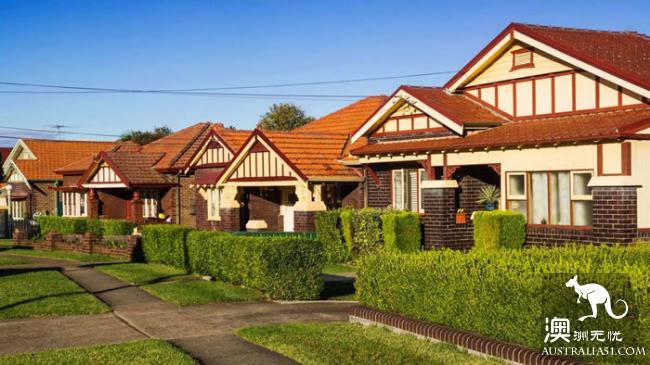
Experts say Australians' retirement plans are always "property-dominated" because of a very concessionary tax system that will worsen housing affordability.
As of 2014, 30 percent of older Australians had two homes in their homes when they retired, up from 25 percent in 2002, according to a new report by the Australian Institute for Housing and Urban Research (AHURI).
While retirees own more homes, the share of self-housing in retirement wealth has fallen from 46% to 39%.
Over the same period, the share of investment property in retirement wealth rose from 9% to 15%.
Lead author Stephen Whelan (Stephen Whelan), an associate professor at the University of Sydney, said current tax policies encourage retirees to use housing as a retirement strategy, which also has an impact on the housing market.
"homeowners are being treated more generously in the tax system, and the tax system implies incentives that encourage people to accumulate wealth through real estate," Whelan said.
"We have a lot of opportunities to take advantage of existing properties and accumulate real estate, which puts pressure on house prices."
The study analyzed Australian households, incomes and labour force between 2002 and 2014 and found that older families were unlikely to sell their investment homes to maintain eligibility for government pension (pension).
Since the home was not included in the pension asset test, but homeowners were allowed to hold two hundred and fifty thousand yuan of assets, and not be reduced pensions, such as investment housing.
Whelan said that although investment housing was included in the asset test, but there are other incentives to encourage retirees to buy housing.
"policies around tax deductions and pension (super) may encourage people to buy a second home as a retirement strategy," Whelan said.
Shane-Oliver (Shane Oliver), chief economist at AMP Capital, said retirees may think the benefits of investing in real estate outweigh the risk of losing a pension.
"it seems that Australians agree with the benefits of real estate and they are not worried about the impact of losing some or all of their pensions," Oliver said.
He said the massive investment in housing has made retirees more vulnerable than they have been in the past few years because of the risk of volatility in the housing market.
Brandon, a researcher at the Gratham Institute, a think-tank on public policy? Mr. Coates (Brendan Coates) said Australia's preference for real estate investment and a favourable tax regime for investors are exacerbating housing affordability.
"retirees tend to save more than they need and bequeath their homes to the next generation," Coates said. The trend threatens to exacerbate inequality and the housing crisis.
He says the federal budget's proposal to extend pension loans to all retirees is a good move for older Australians who want to stay in their homes and for the government to address inequality.
The AHURI report suggests that the government should change its pension policy to make it more "neutral in housing choices," rather than a retirement-income system that benefits those who have the money to buy a house.
Whelan questions whether the current tax system makes the right trade-off between equity and the pursuit of net worth.
"does it make sense that 1 million of those who rent a house and 1 million of people in the bank are not eligible for a pension, but those who own 1 million yuan are eligible for it," he said.